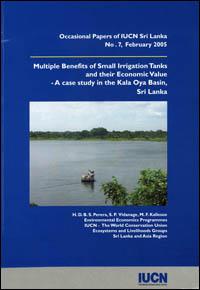Multiple benefits of small irrigation tanks and their economic value : a case study in the Kala Oya Basin, Sri Lanka

Publisher:
Organization(s):
The ancient tank system supported peoples livelihoods in times of foreign invasions. These livelihoods were environment friendly, and had the capacity to feed many a generation who constructed them. Today, many rural people still use these tanks for irrigation and other purposes. IUCN Sri Lanka Country Office implemented a project on integrating wetland ecosystem values into river basin management in collaboration with the Mahaweli Authority of Sri Lanka. The project aimed to demonstrate this methodology in the Kala Oya basin, as a pilot demonstration site. The study also set out to demonstrate the feasibility of managing small irrigation tank systems for biodiversity and ecosystem conservation, and achieving livelihood and poverty alleviation goals. This paper focuses mainly on the direct and indirect services provided by the small tank ecosystems and possible techniques for valuing those which can be utilized in decision making regarding water and resource allocation.
Monographic Series:
Includes bibliographic references
Keywords:
Geographic keywords:
Broad subject:
Call number:
Record updated: 2022/05/24
